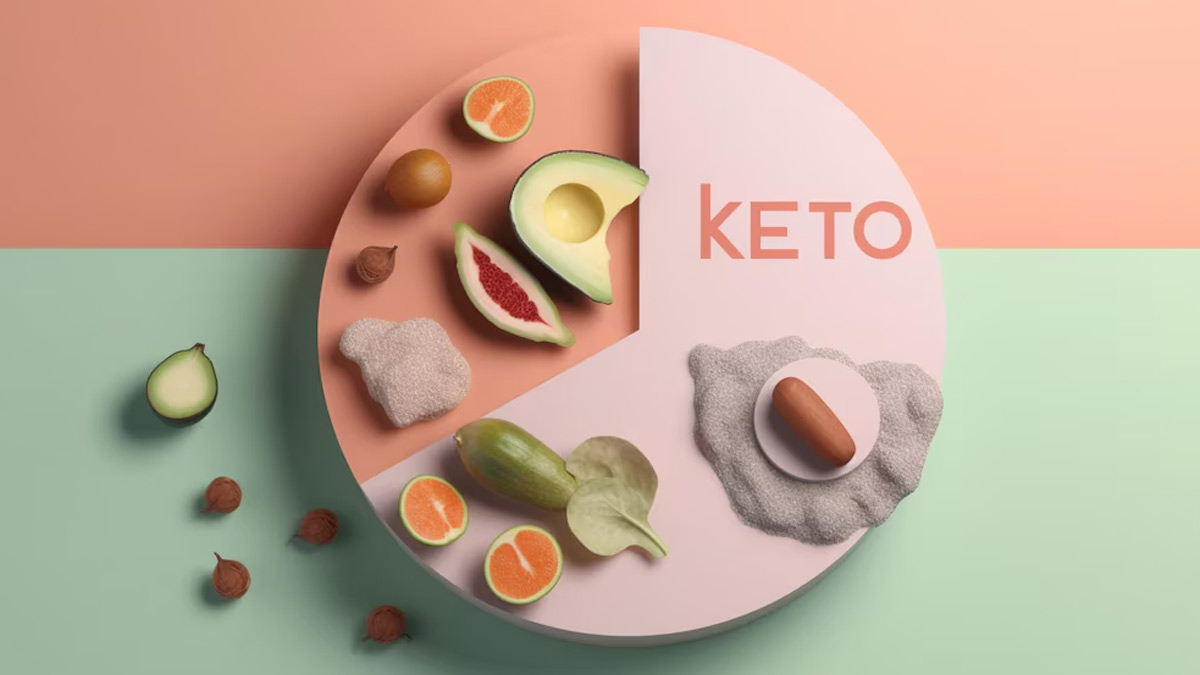
In the world of nutrition and wellness, the concept of ketosis has gained significant attention for its potential health benefits, particularly in weight management and energy optimisation. But what exactly is ketosis, and how can one enter and sustain this metabolic state effectively? We spoke to our expert Dr Archana Batra, Dietician and Certified Diabetes Educator, who explained ketosis, its mechanism, and how to sustain it.
Table of Content:-
Understanding Ketosis

“Ketosis is a natural metabolic state where the body primarily utilises ketones, derived from fat breakdown, as its primary source of energy instead of glucose”, said Dr Batra.
She added, “Typically, it takes around 2-4 days of restricting carbohydrate intake to induce ketosis. However, individual factors, such as metabolic rate, activity level, and initial carbohydrate intake can influence the timeline.”
According to a review by the International Journal of Sports Nutrition and Exercise Metabolism, ketosis is a physiological condition marked by elevated levels of ketones, specifically beta-hydroxybutyrate, in the bloodstream. This state arises when the body shifts its primary energy source from glucose, or blood sugar, to fat due to restricted access to carbohydrates. This restriction is commonly induced by factors, such as starvation, fasting, or adherence to a highly low-carbohydrate diet.
Also Read: What Happens When Your Body Gets More Energy From Fats? Know The Symptoms Of Ketosis
Initiating Ketosis

“To initiate ketosis, it's essential to reduce carbohydrate intake to approximately 20-50 grams per day, depending on individual tolerance levels. This restriction prompts the body to deplete its glycogen stores and transition to burning fat for fuel”, added Dr Batra.
Incorporating moderate amounts of high-quality protein and healthy fats, such as avocados, nuts, seeds, and olive oil, is crucial to support satiety and maintain muscle mass during the process.
Hydration and Electrolytes
Hydration is also key during the initial stages of ketosis, as the body excretes more water and electrolytes. Increasing water intake and consuming electrolyte-rich foods like leafy greens, nuts, and seeds can help prevent dehydration and minimise common side effects, such as headaches and fatigue.
Sustaining Ketosis
Dr Batra said, “Once in ketosis, sustaining this metabolic state requires ongoing commitment and mindfulness. Consistency in carbohydrate restriction is paramount, as even small deviations can halt ketone production and reverse the metabolic shift. Monitoring carbohydrate intake through food journaling or tracking apps can provide valuable insight and accountability.”

Incorporating Physical Activity
In addition to dietary practices, incorporating regular physical activity can enhance ketosis and optimise metabolic health. Both aerobic exercise and resistance training can increase fat oxidation and promote ketone production, supporting weight loss and overall well-being.
Also Read: Spotting Heart Issues: Expert Lists Signs of Heart Problems During Physical Activity
Managing Stress and Sleep
“Prioritising adequate sleep and stress management is essential for sustaining ketosis. Sleep deprivation and chronic stress can elevate cortisol levels, which may hinder fat metabolism and insulin sensitivity, disrupting ketosis efforts”, added Dr Batra. Incorporating relaxation techniques, such as meditation, yoga, or deep breathing exercises can mitigate stress and support metabolic balance.
Nutrient-Dense Food Choices
Prioritising nutrient-dense whole foods is essential for long-term success in ketosis. While ketogenic diets often emphasise high-fat and low-carbohydrate foods, focusing on quality sources of protein, healthy fats, and fibre-rich vegetables ensures adequate nutrient intake and supports overall health and vitality.
Bottomline
Dr Batra concluded, “Entering and sustaining ketosis requires a strategic approach that combines mindful carbohydrate restriction, adequate hydration, regular physical activity, stress management, and nutrient-dense food choices. By embracing these principles and making sustainable lifestyle changes, individuals can unlock the full potential of ketosis and optimise their health and well-being for the long term.”
[Disclaimer: This article contains information provided by an expert and is for informational purposes only. Hence, we advise you to consult your expert if you notice any complications to get the necessary treatment.]
Also watch this video
How we keep this article up to date:
We work with experts and keep a close eye on the latest in health and wellness. Whenever there is a new research or helpful information, we update our articles with accurate and useful advice.
Current Version